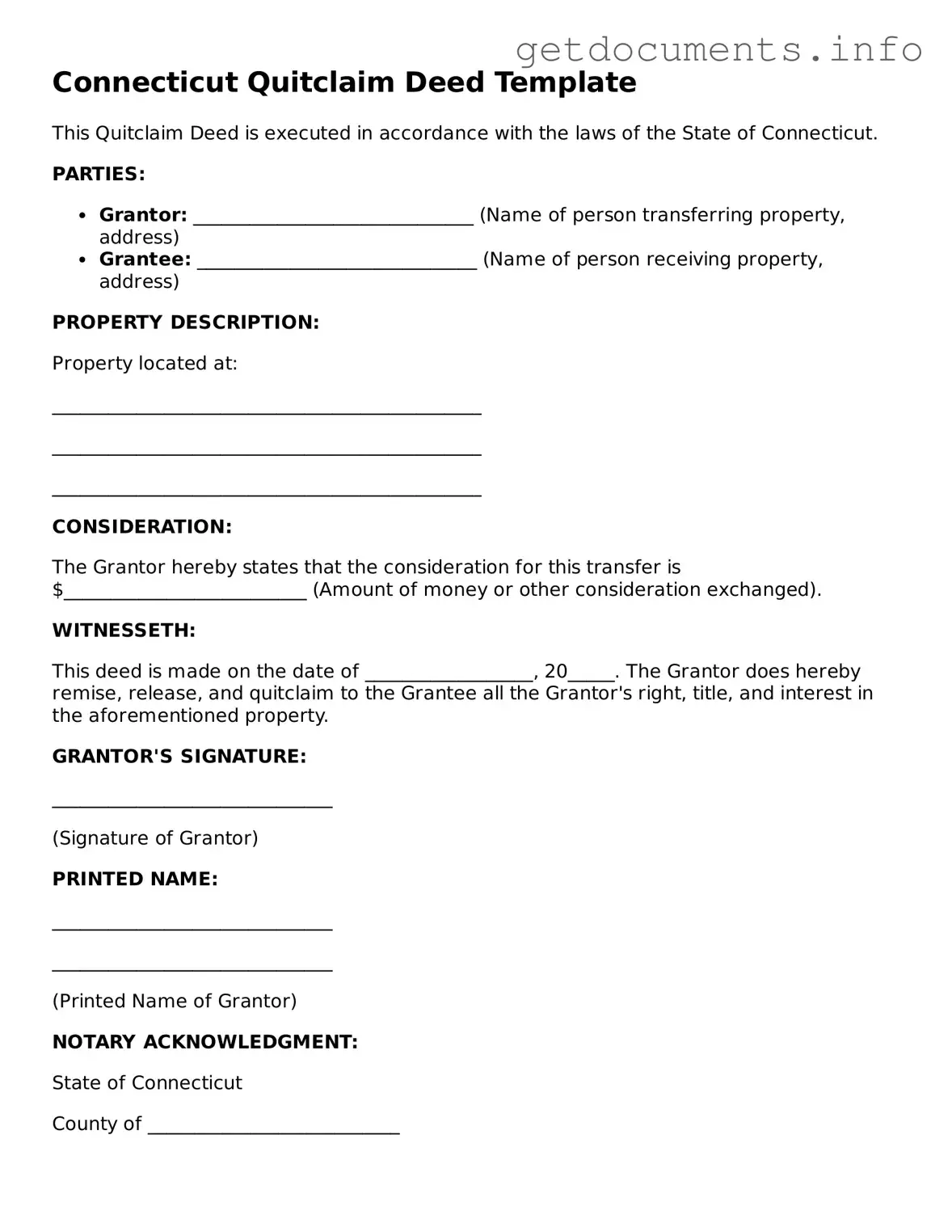Free Quitclaim Deed Template for Connecticut
A Connecticut Quitclaim Deed is a legal document used to transfer ownership of real estate from one party to another without any warranties regarding the property’s title. This form is commonly utilized when the property is being transferred between family members or in situations where the seller does not want to guarantee the title's validity. For those looking to complete a property transfer, filling out the Quitclaim Deed form is essential; click the button below to get started.
Access Quitclaim Deed Editor

Free Quitclaim Deed Template for Connecticut
Access Quitclaim Deed Editor
Got places to be? Complete the form fast
Fill out Quitclaim Deed online and avoid printing or scanning.
Access Quitclaim Deed Editor
or
⇩ PDF File
